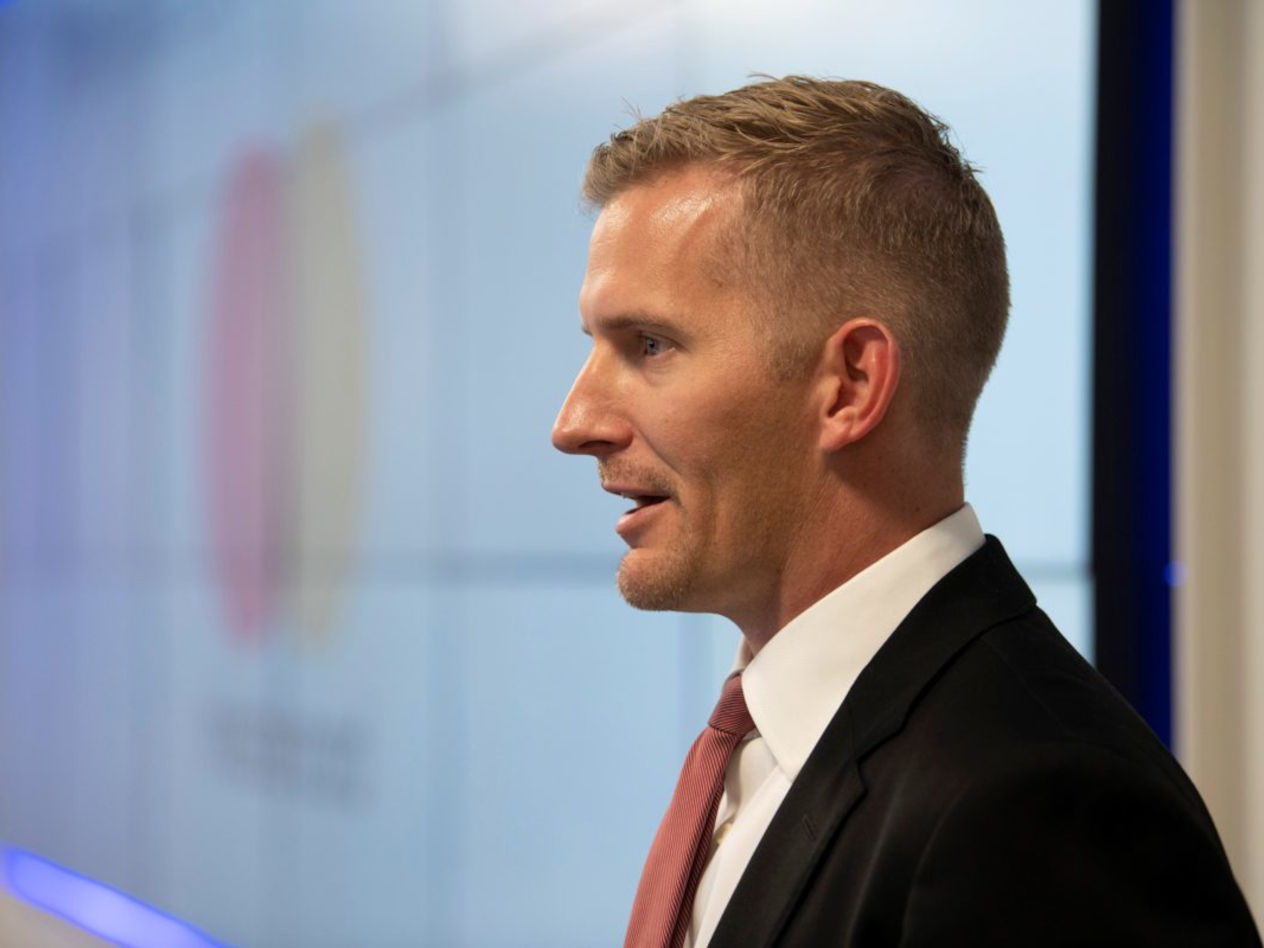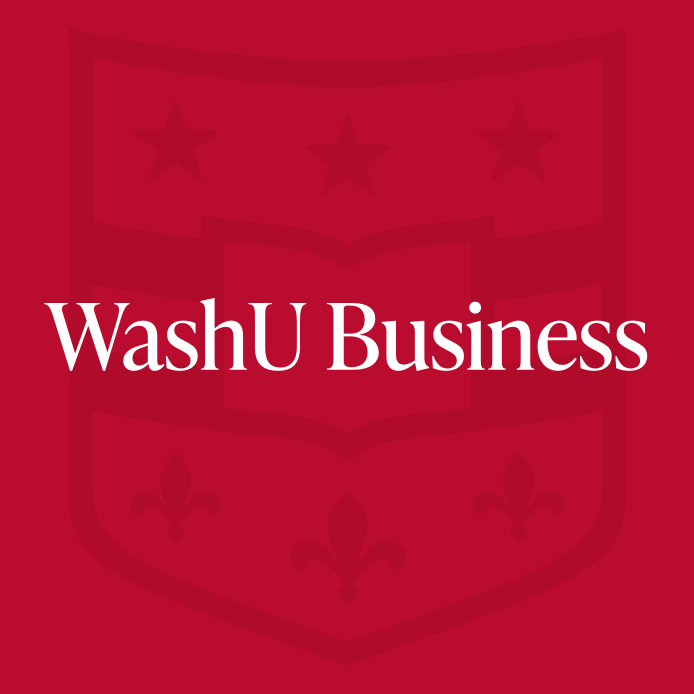Tracking terrorists for the military, fraudsters for Mastercard
- March 1, 2019
- By WashU Olin Business School
- 3 minute read

WashU Olin taught me to step back and troubleshoot to find the solution which gave the best possible outcome.
—Matthew Nyman, EMBA 2017
On any given day, Matthew Nyman and his team at Mastercard’s multidisciplinary anti-fraud hub—its “fusion center”—receive intelligence about potential attacks on the financial ecosystem.
Imagine learning about a software attack that could allow criminals to rob banks. In a coordinated fashion, potentially hundreds of individuals would simultaneously withdraw money from numerous bank ATMs. The combination of attacks could result in damages in the millions to the bank. Nyman’s fusion center team is able to identify, mobilize and thwart attacks such as this to protect Mastercard customers and partners.
Nyman is an Army veteran, wounded warrior, government innovator and 2017 EMBA alum from WashU Olin Business School.
Protecting Mastercard and their customers from the “bad guys” is nothing new to Nyman. As a member of the military, he had built similar nerve centers to coordinate US intelligence efforts and target narco-terrorists. From 2011 to 2014, he led a group of US government contractors working with the Mexican government to create a fusion center so authorities south of the border could target and defuse the work of drug cartels.
“A threat network is a threat network,” Nyman said. “They all operate the same.”
Nyman had considered business school for years. An accident while serving as an Army Ranger in 2005 helped accelerate his thinking. During a combat operation, he was a passenger in a helicopter landing atop a building in Iraq. The aircraft crashed, leaving him with multiple severe injuries to his head, back, lungs, femur and a below-the-knee amputation of his right leg.
After fighting his way back to health and building a stellar career developing and launching threat-assessment centers in the military and public sector, he was ready to pivot to the private sector.
WashU Olin’s EMBA stood out among the three top programs that accepted him. “My whole career has been globally dispersed. I wanted a university that could help add to my résumé and reinforce that international experience,” he said. “That was very important to me.”
Another deciding factor? Olin’s strong commitment to supporting military veterans and the networking opportunities the school offered. “That, combined with learning the language of business and then having the opportunity to marry up my (military) experience with a business degree,” he said. “So many people struggle to communicate what’s relevant about their experience in the language of business.”
While he came into Mastercard with the experience to set up the “fusion center”—where analysts and experts from across multiple company disciplines come together to identify and anticipate threats and vulnerabilities—Nyman said the WashU Olin experience gave him the skills to grow beyond that.
Nyman said, “WashU Olin taught me to step back and troubleshoot to find the solution which gave the best possible outcome.”
By some estimates, the fusion center—profiled in May 2018 in The New York Times—prevented millions in fraudulent transactions last year.
“Mastercard’s technology allows the fusion center team to make swift, but factual based decisions,” said Nyman. “If we have the means to stop fraud, we are going to. We want to do well while doing good.”
Media inquiries
For assistance with media inquiries and to find faculty experts, please contact Washington University Marketing & Communications.
Monday–Friday, 8:30 to 5 p.m.
Sara Savat
Senior News Director, Business and Social Sciences
